OBERLIN
COLLEGE
Department
of History
Gary
Kornblith
History
263
King
141-G; x8526
Fall
1999
E-mail:
Gary.Kornblith@oberlin.edu
AltaVista
Forum: History
263

The
American Civil War and Reconstruction
Less
than a century after fighting for independence from Great Britain and
establishing a federal republic, Americans turned their firearms on
each other in the bloodiest war in the nation's history. At the end
of hostilities, over six hundred thousand soldiers lay dead while approximately
four million former slaves enjoyed legal freedom for the first time.
Thereafter Americans struggled to reorganize their society and redefine
their polity in response to the changes wrought by the Civil War's violence
and to the conflicts that endured in peace.
This
course focuses on three interrelated subjects: the causes of the Civil
War; the dynamics of the war and emancipation; and the outcomes of the
Civil War and Reconstruction. Beyond coverage of this subject matter,
the course is designed to promote three major "student learning
objectives":
- A grasp of
important issues, trends, and controversies in recent scholarship
on the Civil War and Reconstruction.
- An understanding
of how historians develop interpretations based on research in primary
sources and the application of analytic models.
- A capacity
to make independent judgments after careful consideration of available
evidence, alternative scholarly interpretations, and an honest reexamination
of one's preconceptions and biases.
Throughout
the semester, students are expected to draw their own conclusions about
the meaning and significance of events that continue to provoke popular
passions and intellectual argument more than a century after they occurred.

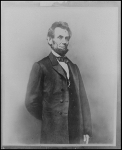
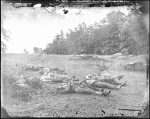
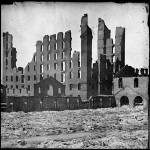
Format:
The class meets regularly on Mondays and Wednesdays from 2:30 to 3:20
p.m. and on Fridays from 2:30 to 4:15 p.m. In general, Mondays will
be devoted to group discussions of the assigned readings; Wednesdays
will be devoted to historical research and analysis using computers;
and Fridays will involve watching and discussing videos on the Civil
War era.
Evaluation:
Students will be graded on the basis of class participation, two position
papers (4-5 pages), two research reports (4-5 pages), and one longer
essay (8-10 pages). The basic formula for determining final grades will
be 15% for each position paper, 15% for each research report, 25% for
the longer essay, and 15% for class participation. The instructor reserves
the right to exercise some discretion in assigning final grades
Purchases:
The following books are available for purchase at the Co-op Bookstore.
- Frederick
Douglass, Narrative of the Life of Frederick Douglass
(required)
- John Ashworth,
Slavery, Capitalism and Politics in the Antebellum Republic,
vol. 1 (required)
- James Oakes,
The Ruling Race (required)
- Michael F.
Holt, The Political Crisis of the 1850s (required)
- Gabor S. Boritt,
ed., Why the Civil War Came (recommended)
- Don E. Fehrenbacher,
ed., Abraham Lincoln: A Documentary Portrait (recommended)
- James M. McPherson,
For Cause and Comrades (required)
- Gerald Linderman,
Embattled Courage (recommended)
- Eric Foner,
A Short History of Reconstruction, 1863-1877 (required)
- Laura Edwards,
Gendered Strife and Confusion (required)
AltaVista
Forum: To
advance the intellectual quality and collaborative dynamics of the class,
students are required to contribute substantively at least once per
week to online discussions on AltaVista Forum. These contributions will
count as part of the "class participation" element in the
determination of final grades.
The
Coming of the Civil War
Fri.,
Sept. 3
Introduction
Audio:
Remembering Slavery
Mon.,
Sept. 6
Labor
Day: No Class
Wed.,
Sept. 8
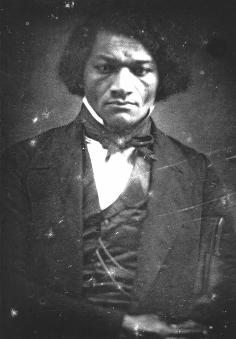
Frederick
Douglass
Discussion:
Slavery,
Morality, and Ideology
- Douglass,
Narrative of the Life of Frederick Douglass, entire
- William
Harper, "Memoir on Slavery" in Drew Gilpin Faust,
ed., The Ideology of Slavery, pp. 78-135 (on
ERes)
Fri.,
Sept. 10
Lecture:
The "Two Civilizations" Debate
Mon.,
Sept.13
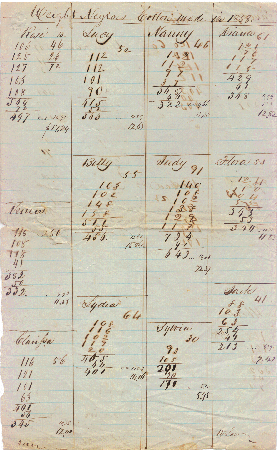
"Weight
Negro Cotton made in 1858." William Law Papers. Special Collections
Library, Duke University.
Discussion:
The Political Economy of
the Old South (Part 1)
- Ashworth,
Slavery, Capitalism and Politics in the Antebellum Republic,
ix-x, 1-15, 80-121, 192-200, 246-62, 280-85
Wed.,
Sept. 15
Computer
Lab: "Valley
of the Shadow"

Fri.,
Sept. 17
Discussion:
The Political Economy of the Old South
(Part 2)
- Oakes,
The Ruling Race, ix-xix,37-95, 123-50
- Robert
W. Fogel, Without Consent or Contract, 64-89
(on ERes)
Mon.,
Sept. 20
Yom
Kippur: No Class
Wed.,
Sept. 22
Computer
Lab: "Valley
of the Shadow"
Fri.,
Sept. 24
Lecture:
The Debate over Inevitability
First
Position Paper due
Mon.,
Sept. 27

William Lloyd
Garrison
Discussion:
Abolitionism,
Sectionalism, and the Party System
- Ashworth,
Slavery, Capitalism, and Politics in the Antebellum
Republic, 125-91
- Amy
Dru Stanley, From Bondage to Contract, 1-35
(on ERes)
- Holt,
Political Crisis of the 1850s, ix-xii, 1-66
Wed.,
Sept. 29
Computer
Lab: Great American History Machine
Fri.,
Oct 1
Video:
The U.S.-Mexican War
Mon.,
Oct. 4
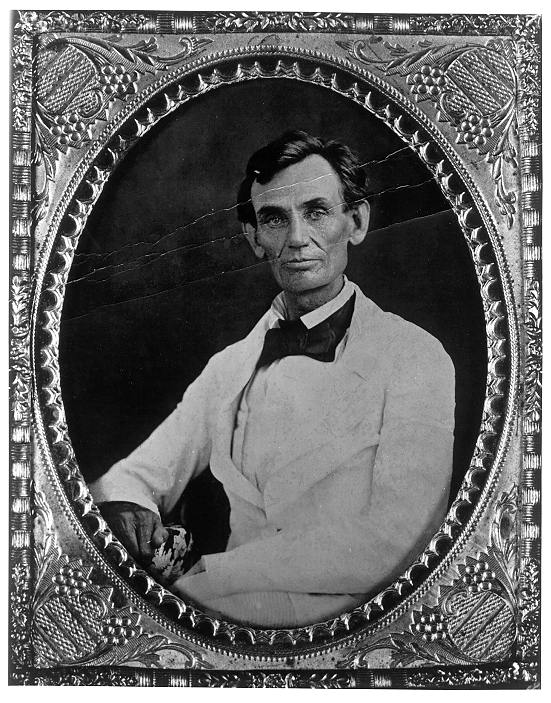
Abraham
Lincoln
Discussion:
The Rise of the Republican Party
- Eric
Foner, "Politics, Ideology, and the Origins of the American
Civil War," in Foner, Politics and Ideology in
the Age of the Civil War, pp. 34-53 (on ERes)
- Holt,
Political Crisis of the 1850s, 67-217
- Fehrenbacher,
ed., Abraham Lincoln, 81-84. 94-117, 119-128,
132-143 (recommended purchase and on ERes)
Wed.,
Oct. 6
Computer
Lab: Great American History Machine
Fri.,
Oct. 8
Walking
Tour of Oberlin's Civil War Sites
Monument
to Oberlin Participants in
John Brown's Raid on Harpers Ferry
Mon.,
Oct. 11
Discussion:
Secession and the Outbreak of War
- Holt,
Political Crisis of the 1850s, 219-259
- David
W. Blight, "They Knew What Time It Was: African Americans
and the Coming of the Civil War," in Boritt, ed., Why
the Civil War Came, 51-77 (recommended purchase and
on ERes)
- William
W. Freehling, "The Divided South, Democracy's Limitations,
and the Causes of the Peculiarly North American Civil War,"
in ibid., 125-175 (recommended purchase and
on ERes)
- Fehrenbacher,
ed., Abraham Lincoln, 146-162 (recommended
purchase and on ERes)
Wed.,
Oct. 13
Computer
Lab: Great American History Machine
Fri.,
Oct. 15
Video:
The Civil War, episode
2
First
Research Report due
The
Civil War and
Emancipation
Mon.,
Oct. 25
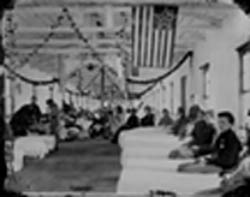
Hospital
Ward
Lecture:
War as a Social Process
Online
resource: Selected
Civil War Photographs in the American Memory website of
the Library of Congress
Wed.,
Oct. 27
Video:
The Civil War, episode
3
Fri.,
Oct. 29
Video:
The Civil War, episode
4
Mon.,
Nov. 1
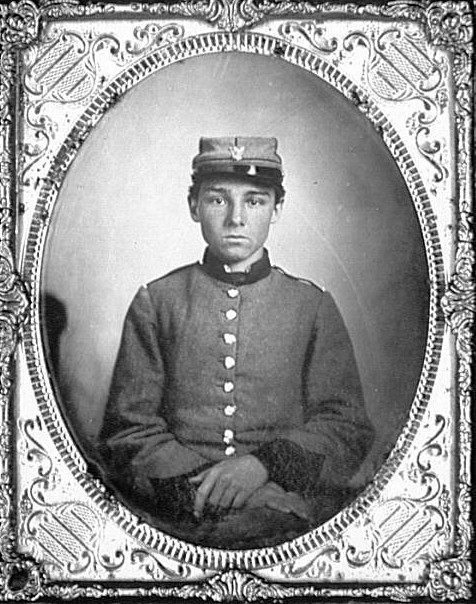
Discussion:
Why White Men Fought
- Gerald
F. Linderman, Embattled Courage, 1-16, 61-79,
156-68, 240-65 (recommended purchase and on ERes)
- McPherson,
For Cause and Comrades, vii-xi, 3-45, 62-130,
163-78
Wed.,
Nov. 3
Computer
Lab: Valley
of the Shadow
and The
Civil War: A Newspaper Perspective in Accessible Archives
Fri.,
Nov. 5
Video:
Glory
Mon.,
Nov. 8
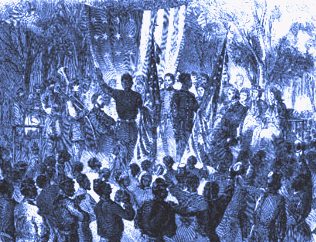
Emancipation Day Celebration
Discussion:
The Dynamics of Emancipation
- Eric
Foner, A Short History of Reconstruction, 1-54
- Leon
F. Litwack, Been in the Storm So Long, 104-49,
163-166 (on ERes)
- James
M. McPherson, "Who Freed the Slaves?" Drawn with the
Sword,192-207 (on ERes)
Wed.,
Nov. 10
Computer
Lab: HarpWeek
and
The
Civil War: A Newspaper Perspective in Accessible Archives
Fri.,
Nov. 12
Video:
The Civil War,
episode 9
Second
Position Paper due
Reconstruction
Mon.,
Nov. 15
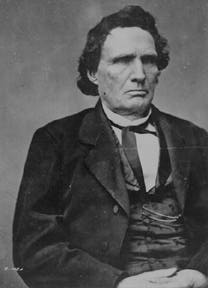
Thaddeus
Stevens
Discussion:
Origins and Goals of Radical Reconstruction
- Allan
G. Bogue, "Historians and Radical Republicans: A Meaning
for Today," Journal of American History
70 (June 1983): 7-34 (on JSTOR)
- Michael
Les Benedict, "Preserving the Constitution: The Conservative
Basis of Radical Reconstruction," Journal of American
History 61 (June 1974): 65-90 (on JSTOR)
- Foner,
Short History of Reconstruction, 55-147
Wed.,
Nov. 17
Computer
Lab: Great American History Machine
Fri.,
Nov. 19
Video:
Long Shadows
Mon.,
Nov. 22
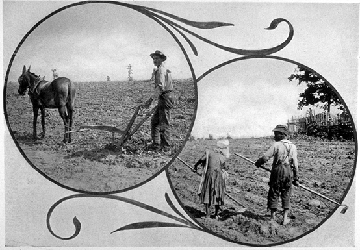
Cotton
sharecropping
Discussion:
Forces of Change
- Roger
L. Ransom and Richard Sutch, One Kind of Freedom, 1-13
(on ERes)
- Foner,
Short History of Reconstruction, 148-179
- Edwards,
Gendered Strife and Confusion, xi-xiii, 24-106,
145-183
Wed.,
Nov. 24
Computer
Lab:
Great
American History Machineeek
Fri.,
Nov. 28
No class
Mon.,
Nov. 29
Discussion:
Forces of Resistance
- Ransom
and Sutch, One Kind of Freedom, 171-191 (on
ERes)
- Foner,
Short History of Reconstruction, 180-260
- Edwards,
Gendered Strife and Confusion, 184-254
Wed.,
Dec. 1
Computer
Lab: Great American History Machine
Fri.,
Dec.3
Video:
Presenting Mr. Frederick Douglass
Research
reports due
Mon.,
Dec. 6
Discussion
of research reports
Wed.,
Dec. 8
Video:
Birth of a Nation (part
1)
Fri.
Dec. 10
Video:
Birth of a Nation (part
2)
Mon.,
Dec. 13
Discussion:
Reconstruction in Comparative Perspective
- Thomas
C. Holt, "'An Empire over the Mind': Emancipation, Race,
and Ideology in the British West Indies and the American South,"
in J. Morgan Kousser and James M. McPherson, eds., Region,
Race, and Reconstruction, 283-313 (on ERes)
- Steven
Hahn, "Class and State in Postemancipation Societies: Southern
Planters in Comparative Perspective," American Historical
Review, 95 (Feb. 1990): 75-98 (on JSTOR)
- Stanley
Engerman, "The Economic Response to Emancipation and
Some Economic Aspects of the Meaning of Freedom," in
Frank McGlynn and Seymour Drescher, The Meaning of Freedom,
49-68 (on ERes)
Thurs.,
Dec. 16
Final
Paper due
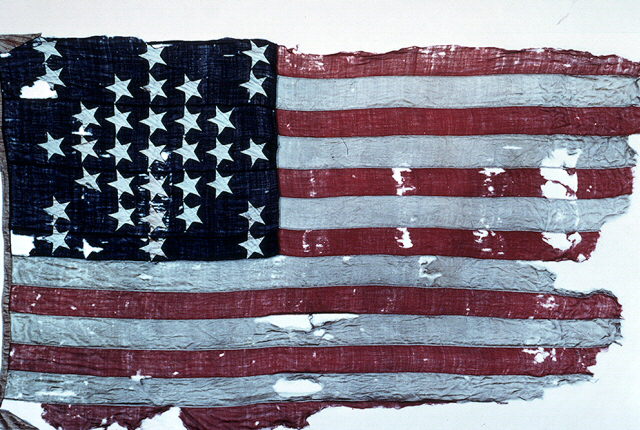
Background:

OBERLIN
COLLEGE
Department
of History
| Gary Kornblith |
History
263
|
| King 141-G; x8526 |
Fall
1999
|
| E-mail: Gary.Kornblith@oberlin.edu |
AltaVista Forum: History 263 |

The
American Civil War and Reconstruction
 |
The American Civil War and Reconstruction |
Less than a century after fighting for independence from Great Britain and establishing a federal republic, Americans turned their firearms on each other in the bloodiest war in the nation's history. At the end of hostilities, over six hundred thousand soldiers lay dead while approximately four million former slaves enjoyed legal freedom for the first time. Thereafter Americans struggled to reorganize their society and redefine their polity in response to the changes wrought by the Civil War's violence and to the conflicts that endured in peace.
This course focuses on three interrelated subjects: the causes of the Civil War; the dynamics of the war and emancipation; and the outcomes of the Civil War and Reconstruction. Beyond coverage of this subject matter, the course is designed to promote three major "student learning objectives":
- A grasp of important issues, trends, and controversies in recent scholarship on the Civil War and Reconstruction.
- An understanding of how historians develop interpretations based on research in primary sources and the application of analytic models.
- A capacity to make independent judgments after careful consideration of available evidence, alternative scholarly interpretations, and an honest reexamination of one's preconceptions and biases.
Throughout the semester, students are expected to draw their own conclusions about the meaning and significance of events that continue to provoke popular passions and intellectual argument more than a century after they occurred.



Format: The class meets regularly on Mondays and Wednesdays from 2:30 to 3:20 p.m. and on Fridays from 2:30 to 4:15 p.m. In general, Mondays will be devoted to group discussions of the assigned readings; Wednesdays will be devoted to historical research and analysis using computers; and Fridays will involve watching and discussing videos on the Civil War era.
Evaluation: Students will be graded on the basis of class participation, two position papers (4-5 pages), two research reports (4-5 pages), and one longer essay (8-10 pages). The basic formula for determining final grades will be 15% for each position paper, 15% for each research report, 25% for the longer essay, and 15% for class participation. The instructor reserves the right to exercise some discretion in assigning final grades
Purchases: The following books are available for purchase at the Co-op Bookstore.
- Frederick Douglass, Narrative of the Life of Frederick Douglass (required)
- John Ashworth, Slavery, Capitalism and Politics in the Antebellum Republic, vol. 1 (required)
- James Oakes, The Ruling Race (required)
- Michael F. Holt, The Political Crisis of the 1850s (required)
- Gabor S. Boritt, ed., Why the Civil War Came (recommended)
- Don E. Fehrenbacher, ed., Abraham Lincoln: A Documentary Portrait (recommended)
- James M. McPherson, For Cause and Comrades (required)
- Gerald Linderman, Embattled Courage (recommended)
- Eric Foner, A Short History of Reconstruction, 1863-1877 (required)
- Laura Edwards, Gendered Strife and Confusion (required)
AltaVista Forum: To advance the intellectual quality and collaborative dynamics of the class, students are required to contribute substantively at least once per week to online discussions on AltaVista Forum. These contributions will count as part of the "class participation" element in the determination of final grades.
|
The Coming of the Civil War
|
| Fri., Sept. 3 |
Introduction Audio: Remembering Slavery |
|
|
|
||
|
Mon., Sept. 6 |
Labor Day: No Class |
|
|
Wed.,
Sept. 8 |
Discussion: Slavery, Morality, and Ideology
|
|
| Fri., Sept. 10 | Lecture: The "Two Civilizations" Debate | |
|
|
|
|
|
Mon., Sept.13
|
Discussion: The Political Economy of the Old South (Part 1)
|
|
|
Wed., Sept. 15
|
Computer Lab: "Valley of the Shadow"
|
|
|
Fri., Sept. 17 |
Discussion: The Political Economy of the Old South (Part 2)
|
|
|
|
|
|
|
Mon., Sept. 20 |
Yom Kippur: No Class |
|
|
Wed., Sept. 22 |
Computer Lab: "Valley of the Shadow" |
|
|
Fri., Sept. 24 |
Lecture: The Debate over Inevitability First Position Paper due |
|
|
|
|
|
|
Mon.,
Sept. 27 William Lloyd Garrison |
Discussion: Abolitionism, Sectionalism, and the Party System
|
|
|
Wed., Sept. 29 |
Computer Lab: Great American History Machine
|
|
|
Fri., Oct 1 |
Video: The U.S.-Mexican War |
|
|
|
|
|
|
Mon., Oct. 4
|
Discussion: The Rise of the Republican Party
|
|
|
Wed., Oct. 6 |
Computer Lab: Great American History Machine |
|
|
Fri., Oct. 8
|
Walking
Tour of Oberlin's Civil War Sites
Monument
to Oberlin Participants in |
|
|
|
|
|
|
Mon., Oct. 11 |
Discussion: Secession and the Outbreak of War
|
|
|
Wed., Oct. 13 |
Computer Lab: Great American History Machine |
|
|
Fri., Oct. 15 |
Video: The Civil War, episode 2 First Research Report due |
|
|
|
|
|
The
Civil War and
|
|
Mon., Oct. 25
|
Lecture: War as a Social Process Online resource: Selected Civil War Photographs in the American Memory website of the Library of Congress |
|
|
Wed., Oct. 27 |
Video: The Civil War, episode 3 |
|
|
Fri., Oct. 29 |
Video: The Civil War, episode 4 |
|
|
|
|
|
|
Mon., Nov. 1
|
Discussion: Why White Men Fought
|
|
|
Wed., Nov. 3 |
Computer Lab: Valley of the Shadow and The Civil War: A Newspaper Perspective in Accessible Archives |
|
|
Fri., Nov. 5 |
Video: Glory |
|
|
|
|
|
|
Mon.,
Nov. 8 |
Discussion: The Dynamics of Emancipation
|
|
|
Wed., Nov. 10 |
Computer Lab: HarpWeek and The Civil War: A Newspaper Perspective in Accessible Archives |
|
|
Fri., Nov. 12 |
Video: The Civil War, episode 9 Second Position Paper due |
|
Reconstruction
|
|
Mon., Nov. 15
|
Discussion: Origins and Goals of Radical Reconstruction
|
|
|
Wed., Nov. 17 |
Computer Lab: Great American History Machine |
|
|
Fri., Nov. 19 |
Video: Long Shadows |
|
|
|
|
|
|
Mon., Nov. 22
|
Discussion: Forces of Change
|
|
|
Wed., Nov. 24 |
Computer Lab: Great American History Machineeek |
|
|
Fri., Nov. 28 |
No class |
|
|
|
|
|
|
Mon., Nov. 29
|
Discussion: Forces of Resistance
|
|
|
Wed., Dec. 1 |
Computer Lab: Great American History Machine |
|
|
Fri., Dec.3 |
Video: Presenting Mr. Frederick Douglass Research reports due |
|
|
|
|
|
|
Mon., Dec. 6 |
Discussion of research reports |
|
|
Wed., Dec. 8 |
Video: Birth of a Nation (part 1) |
|
| Fri. Dec. 10 |
Video: Birth of a Nation (part 2) |
|
|
|
||
| Mon., Dec. 13 |
Discussion: Reconstruction in Comparative Perspective
|
|
|
Thurs., Dec. 16 |
Final Paper due |

Background:

